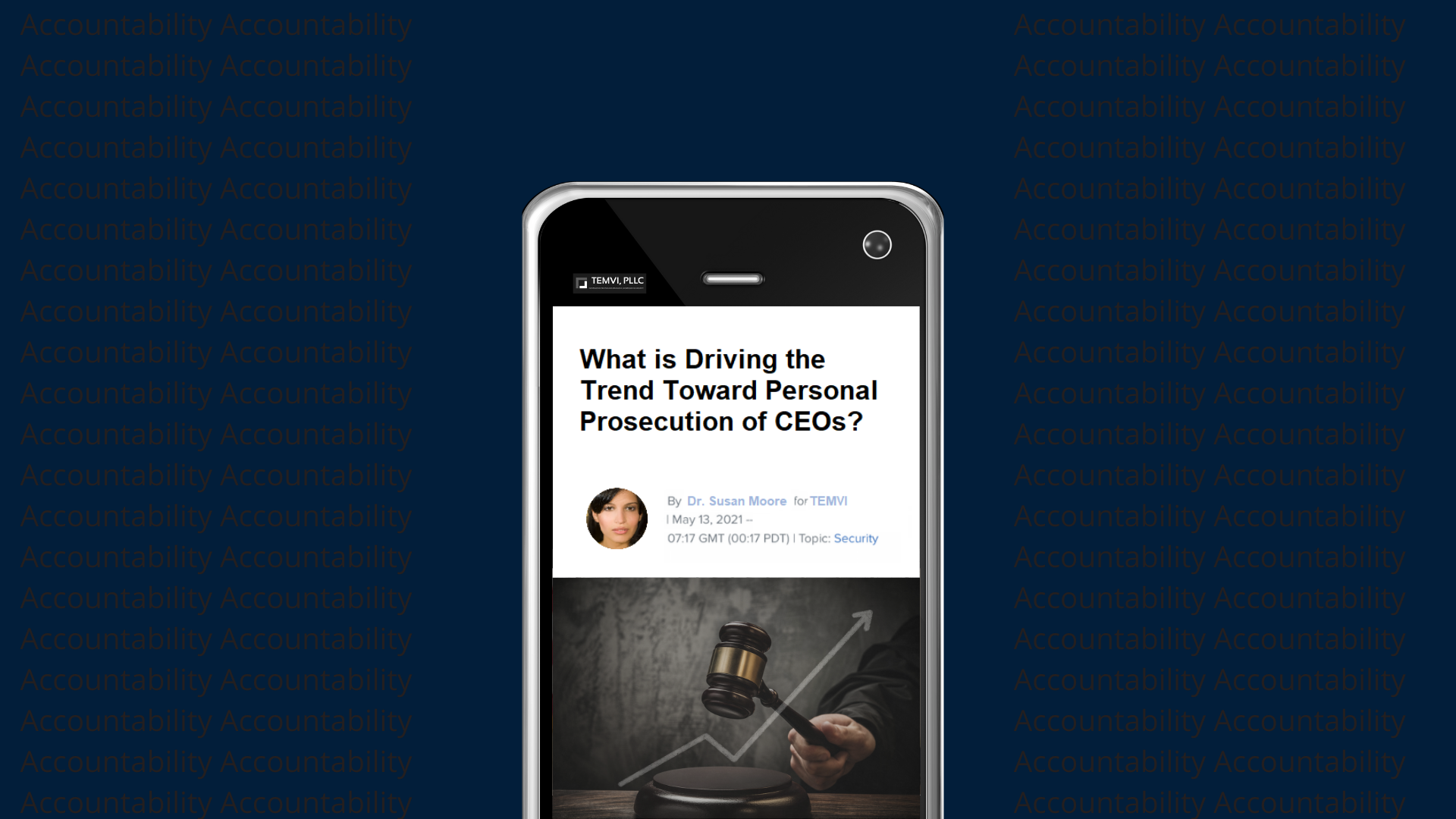What is Driving The Trend Toward CEO Personal Legal Liability

By Susan Moore, PhD
May 13, 2021
WASHINGTON--"Anyone who is attempting to hide corporate irresponsibility behind the veil of corporate immunity is living in the past" says Donald Temple. Temple is a litigator with an impressive track record of successful litigation in federal appellate courts including the Supreme Court of the United States of America. Temple's professional "sweet spot" has been litigating complex legal issues at the intersection between evolving social trends and the law.
Temple explains that the public enjoys an unprecedented access to information and will no longer be left holding the bag. "The public is demanding corporate responsibility, particularly when actions affect non-parties to corporate actions. This is particularly true where corporate negligence results in death and serious bodily injury to innocent bystanders."
Temple says. The law has never allowed the corporation to act as a shield to fraud, or other criminal acts. The current trend reflects a public demand for more aggressive interpretation and enforcement of existing laws around criminal negligence.
According to Temple and other experts on legal cyber-risk, executives relying on cases like Citizens United v. Federal Election Commission, as a shield from criminal negligence or criminal prosecution are misreading the law. "Citizens United was essentially a First Amendment case. It was about whether responsible actors could be treated as a person for the narrow purpose of the First Amendment rights." says Temple. "
As frightening as Citizens might have seemed to some opponents, it in no way created a shield for executives from liability. At the end of the day, courts won't expect to put a corporation in jail. The CEO is still the embodiment of the corporation for the purposes of liability to third parties for criminal acts." For perspective, consider that the Supreme Court has not recognized a Fifth Amendment right against self-incrimination for a corporation, holding that the right can be exercised only by a natural person..
In United States v. Sourapas and Crest Beverage Company, "[a]ppellants [suggested] the use of the word 'taxpayer' several times in the regulations requires the Fifth Amendment self-incrimination warning be given to a corporation." The Supreme Court did not agree. Likewise, corporations and organizations do not have privacy rights under the Privacy Act of 1974, since the statute refers to any “individual,” which it defines as “a citizen of the United States or an alien lawfully admitted for permanent residence.” Moreover, since the Supreme Court's ruling in Citizens United, there have been several calls for a Constitutional amendment to abolish any notion of corporate personhood.
The Citizens United majority opinion makes no reference to corporate personhood or the Fourteenth Amendment, but rather holds that political speech rights do not depend on the identity of the speaker, which could be a person or an association of people. Clearly, even under Citizen's United, a CEO personally still has a fiduciary obligation to all parties who entrust confidential information to its company’s databases. This is clearly an area where all CEOs are well advised to know, understand, and act in accordance with their duties to the public and stakeholders as fiduciaries.
Ayan View contributed to this article.
Copyright 2021 TEMVI, PLLC All Rights Reserved
